Chôjûrô Kawarasaki
Nacimiento : 1902-10-12, Tokyo, Japan
Muerte : 1981-09-22

Sasuke
Frustrated with the bad behavior of his lord, Inaba Yajuro (Otomo) declares that he is leaving the clan and sets off on a journey that leads him into a small town besieged by a violent group of brigands. In a kind of homage to Kurosawa's 7 Samurai, the townspeople have been unable to defend themselves and Inaba sets out to teach them how to stand up for themselves. Meanwhile the vile Lord Yasumasa has sent the 4 finest swordsmen in the clan out to hunt Inaba down and kill him. Led by the magnificent Ichibei (Konoe), a master of weaponry in his own right, everything points to an ultimate showdown between the former friends in a battle to the death.

Magistrate O'oka Echizen
A story of an orphan boy who wanted the love of parents so badly, another orphan sincerely pitied him to the point he gives his secret birthright as an illegitimate son to a Shogun as a "gift of hope" to the sad boy. As the orphan boy grew up, his loving heart became bitter and he saw the opportunity to take advantage of this birthright with the help of a man who wanted to use this orphan's desire to be loved, for seizing power in the shogunate by using the imposter. Many obstacles to hurdle along the way of deception, however, will they succeed or will he be exposed?

Kabuki adaptation: A princess, a figure from the literary past who anticipates a modern woman, tempts a self righteous priest.

A period film about a peasant revolt in the region near Mount Fuji, occasioned by high officials' depriving the farmers of their water rights.
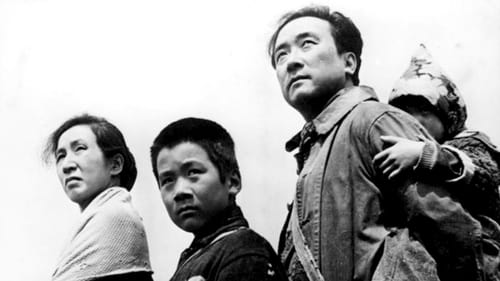
Shuzo Mori
About the struggles of day labourers to achieve dignity and a standard of living above the starvation level. Utilising the Zenshinza theatrical troupe.

Musashi Miyamoto
The first of five Musashi series, Shinobu and her brother Genichiro plead with the famous swordsman Musashi Miyamoto to teach them swordsmanship to avenge their father's death. The killers of their father see the sister and brother practicing with Miyamoto, and so enlist the help of another powerful swordsman, Kojiro Sasaki, which gives Sasaki an excuse to battle Miyamoto.
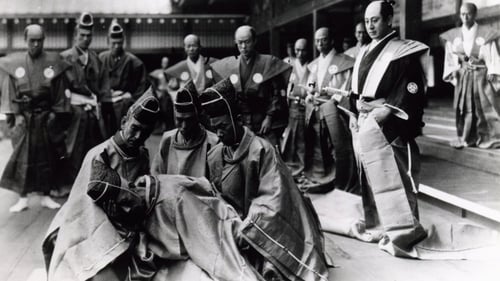
Kuranosuke Oishi
El 14 de Marzo de 1701, en la real capital de Edo, el señor feudal Asano ataca al señor Kiru mientras se encuentra en tierra sagrada. A causa de esta grave ofensa, Asano es obligado a hacerse el harakiri. Sin embargo, 47 de sus samuráis juran vengar a su amo. Estrenada en dos partes en Japón, la primera de 112 minutos el 1 de diciembre de 1941 y la segunda de 111 minutos el 11 de febrero de 1942. (FILMAFFINITY)

The year is 1936. Ôhinata-mura was a very poor village between deep valleys. Soncho, the village head is trying to collect the village taxes from the villagers but he knows full well that no one can afford to pay the village tax which has been unpaid for years...
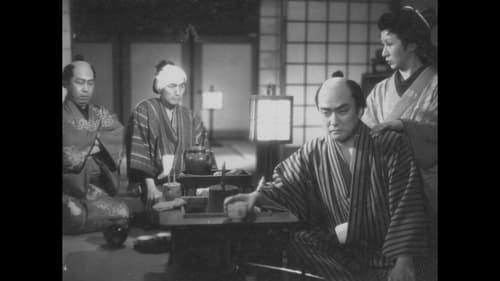
A jidaigeki film on Banzuiin Chōbei produced in 1940 and directed by Yasuki Chiba.
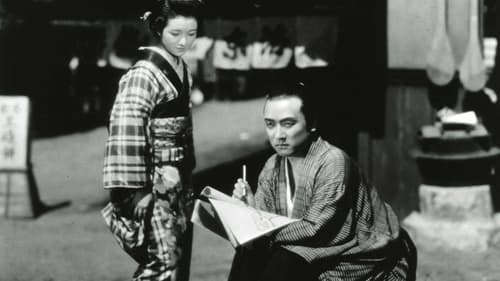
Sentaro Takikawa
A forceful indictment of the devastating effects of war and nationalistic fanaticism on the average man, who, in the face of the absurdity of violence, is reduced to apathy or victimhood.

Set in the late Edo period of the assassination of Dairo Ii, the sword and emotional romance that depicts the murderous world. The turmoil of the end of the Edo period is depicted through the nameless Ichii people, centering on the main character of the Hatamoto collapse that is drunk by the waves of the end of the Edo period.

Matajuro Emoto
“Widely acclaimed as the first full-scale historical film epic in Japan, Kumagai’s adaptation of Ogai Mori’s celebrated novel is an indictment of the bushido tradition of saving face through harakiri. The 19 vassals of Lord Hosokawa ask permission to commit harakiri with him, as a demonstration of their loyalty. Only Yaichiemon Abe is refused permission, forced instead into the vassalage of his lord’s successor. Humiliated and derided, Yaichiemon eventually commits harakiri without permission. His eldest son is then punished for Yaichiemon’s suicide, and when he resists, is sentenced to death. The entire Abe clan rebels upon the son’s execution, and the clan is annihilated.” --Alan Poul, Japan Society

Matajuro Unno
Un samurai sale adelante haciendo globos de papel pero un buen día su vida da un giro cuando es perseguido debido a un altercado en el que se involucra por casualidad. La película está considerada como una de las mejores de Sadao Yamanaka y una de las más plausibles del cine japonés

Story of a bandit king part 2.

Toki Saemonnojō
Story of a bandit king.
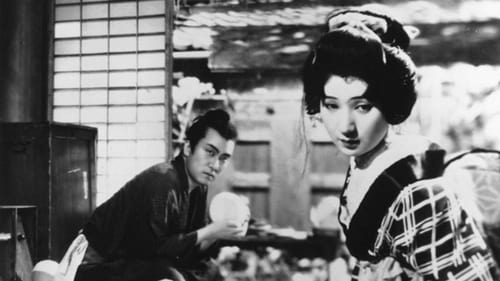
Kochiyama Soshun
A boy steals a knife from an old samurai, unaware of its value, setting off a strange chain of events.

Iwakichi
A tragic period film about a gangster who comes out of prison and finds it hard to find a place again in society.












